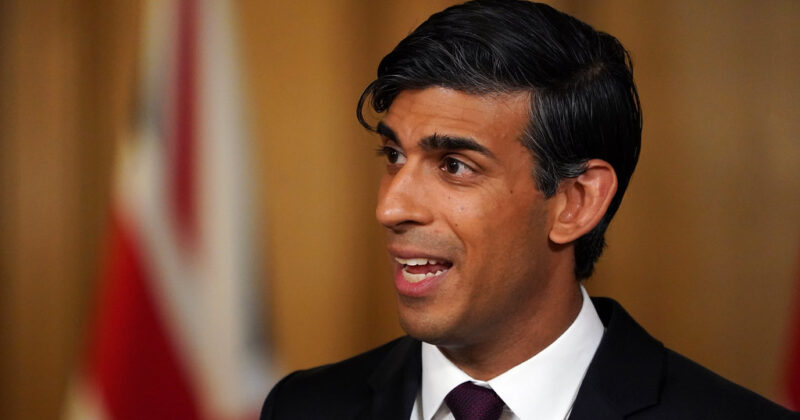From New Labour to Blue Labour
Labour leader Ed Miliband’s has started to show his true colours, setting out what he would – and crucially would not – do if elected in 2015.
Blue Labour is the name of a new influential tendency inside the Labour party, based on the ideas of Lord Glasman and Jonathan Rutherford. It has already captured the ears of Labour’s front bench, including Marc Stears, personal advisor to Ed Miliband, and Jon Cruddas, Labour’s policy review coordinator. Miliband has praised Blue Labour’s “political energy and intellectual confidence”.
But this hasn’t been without controversy. The party faction first came to light in 2011 when its guru, Baron Maurice Glasman said: “Labour lied about immigration and should recognise that is not the case that everyone who comes to Britain should have equal status with people who were born here… Labour needs to involve people who support the English Defence League within the party as a way of reconnecting with working-class people.”
Glasman later apologised, but without withdrawing his proposed zero immigration policy, which is to the right of the Tories.
Recent policy statements have been inspired by Blue Labour concepts:
* Capping welfare spending for three years, hitting pensioners hardest
* Raising the threshold for the higher contributions-based Job Seekers Allowance (JSA) from two years in work to five years, hitting women, youth, black and Asian workers, who rely more on casual, part-time jobs
* Introducing compulsory workfare schemes for under-25s after six months on the dole, and for the rest of us – including mothers of young children – after two years
* Introducing means-testing for winter fuel allowance and child benefit
* Toughening up work capability testing
Miliband claims this can be done by still “putting decent values at the heart of the system”. So what are these values?
What is Blue Labour?
Blue Labour was launched in 2009, with the central tenet that Labour must win back working class support by positioning itself as a party of “social conservatism”, in place of equality and internationalism. Labour apparently needs to ditch all this left wing nonsense and pander to the right.
For Lord Glasman, egalitarianism is the root cause of working class “dependency” on the welfare state. The achievements of the 1945 Labour government, recently celebrated in Ken Loach’s film “The Spirit of ‘45”, were, according to this version of events, a wrong turn. If this sounds like rehashed Tory propaganda, maybe the clue is in the colour blue.
Instead, he says that decentralised public services should be staffed by volunteers and delivered according to people’s ability to pay for them. So Lambeth, a flagship Blue Labour authority, is introducing a “co-op” library service, staffed by volunteers and putting ninety jobs at risk. In Newham, Blue Labour champion Sir Robin Wales has gone further, fast-tracking people in work ahead of unemployed families on the housing waiting list, arguing that it is “not acceptable that generations of people live on welfare”.
Blue Labour thus looks suspiciously similar to David Cameron’s “Big Society”, with its union-bashing, its “democratic” camouflage for job and service cuts and George Osborne’s divisive “strivers versus skivers” rhetoric. Glasman replies that Blue Labour also attacks the market.
But Blue Labour’s solution is to tweak the market. Employers will receive a taxpayers’ subsidy if they pay the living wage, rather than the minimum wage; local authorities will get powers to “negotiate down” rents, through council tax breaks to landlords of housing benefit claimants.
Family, faith and the flag
Blue Labour sums up its message in the slogan: “family, faith and the flag”. Despite its rhetoric about reconnecting with working class voters, it is a thoroughly right wing, populist message.
Glasman claims Blue Labour is “a contemporary form of feminism” and “addresses problems with men: lack of maturity, faithfulness, responsibility”, while “people [i.e. mostly women] who look after their parents… care for their children, that is to be conceptualised as ‘putting in’.”
This is not women’s liberation; it is the state straightjacketing women into being faithful wives, dutiful daughters and caring mothers.
Even more reactionary is the notion of faith. Any attempts to give religion a greater say in education, healthcare or welfare will allow bigots to define who is deserving and who is not, what roles and rights are suitable for women, LGBT people and children.
Marc Stears, Miliband’s speechwriter, has called for a “left patriotism”. But what can this mean? “British jobs for British workers”, a slogan that has led to strikes to demand the sacking of migrant workers? Support for military adventures, like those in Iraq and Afghanistan?
Blue Labour’s populist twist on “New Labour”, far from turning the party towards the real needs of working class voters, simply reinforces the propaganda of the Tories and the tabloids, whipping up fear and hatred of migrant workers, the unemployed, and anyone with an alternative lifestyle.
Unfortunately the union barons, desperate to return “their” leaders to power, are fawning courtiers in the sycophantic charade that passes for party democracy. Unite general secretary Len McCluskey, promoted by some on the left like the Socialist Party and Counterfire, commented after Miliband’s JSA rethink, “If Ed Miliband continues in this vein, he will win working people back to Labour… working with the unions, as well as employers, we can bring these policies to life.”
Fake lefts like McCluskey will simply roll over when the Labour leadership tells them to. Instead, we need to demand the union leaders stop bankrolling Labour unless and until the party adopts pro-working class policies: reverse all the cuts; nationalise the banks’ assets; tax the rich.
At the same time, we should be under no illusion that Labour can be captured by the left. We need to break the unions from their slavish adhesion to Labour and to building a new workers’ party.







